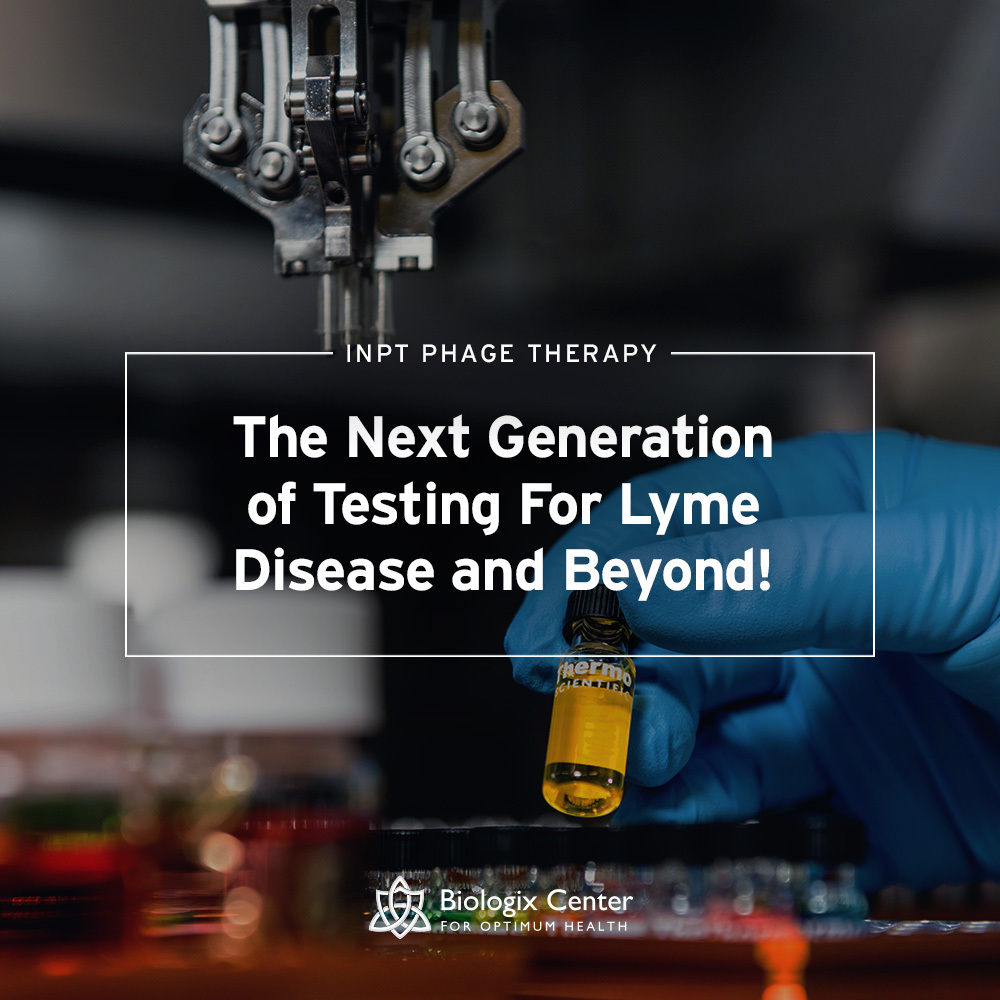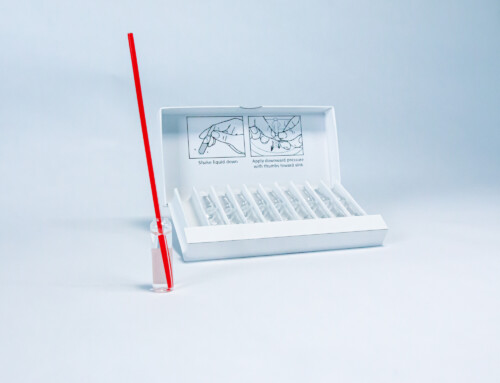A new generation of lab testing based upon bacteria-specific phage tests is rendering obsolete older bacterial testing methods, such as Western Blot, ELISA, and direct bacterial PCR tests. Some of these older types tests may only detect the bacteria 30% of the time, while the new, Phage-based lab tests are pushing ever closer to 90% success with a much higher degree of confidence that the person does indeed have the infection.
Good News for Doctors and Patients…Acute or Chronic
Better testing enables better treatment results. These new phage-based tests are just as sensitive early in the infection, the acute phase, as in the chronic or late stage infection, and it matters not if a person has already undergone extensive treatment for their infection. If the treatment was not effective, meaning the bacteria is still anywhere in the person’s body, these new tests will still be able to detect the infection. Not only will the test results say a “Positive” or “Negative,” but they will also say exactly what type of Borrelia strain you have. This is hugely important, since the treatment for Borrelia burgdorferi strain of Lyme disease does not work for other strains, such as Borrelia Hemsii, or B. Duncani, which require a different medication strategy. It doesn’t matter if a person switches from an oral antibiotic to the I.V. version, the antibiotic still won’t kill if it is for the wrong type of Borrelia. Many thousands of people are suffering the effects of years of the incorrect treatments because the older tests would not determine the exact strain of Borrelia they actually have.
A recent review of Phelix-Borrelia-Phage testing of people from 16 different states in the U.S., revealed a surprising finding. Only one person had the classic strain of Lyme, the Borrelia burgdorferi, while the vast majority, about 52% had Borrelia Miyamotoi and 42% had one or more strains of Borrelia that are most associated with Relapsing Fever. It is highly likely that none of these people received the correct treatment from their doctor, since none of the people had been tested with this new phage-based test, and none of the old style Lyme lab tests can determine a person’s exact strains.
Contrasting the Old With the New Testing
Almost anyone who has had Lyme disease (LD) or who treats people with Lyme disease can tell you that the blood testing for Borrelia bacteria, the primary causative factor in LD, often lacks the sensitivity to detect and diagnose the illness. In truth, the Lyme Western Blot test, which for years has been the first line test, is an antibody test, leading many non-Lyme literate physicians to declare that the patient does not have Lyme disease, even when the test is positive, often stating how the antibodies just indicate the patient’s body has seen the bacteria before and created antibodies. Even if this were not the case, the Western Blot test is not very sensitive, missing the diagnosis as much as 70% of the time.
The Next Generation of Lyme Testing
The first phage-based lab test in the world is the Phelix Borrelia-Phage test. Initially developed by Leicester University, in England, one of the leaders in phage research, and Phelix Charity, the research of the Phelix Borrelia-Phage test has been further adapted by RED Laboratories for wider functionality. The RED Laboratory is the leader and presently is the only lab to offer phage-based lab testing.
Why is the Phelix Borrelia-Phage Test so Accurate?
New research that shook the Lyme world was release at the 2020 ILADS conference (International Lyme and Associated Disease Society) by Tatjana Miyatovic, PhD who discovered that when ticks consume a blood meal from an Borrelia infected animal, those Borrelia are already being “infected” by Borrelia-phages, in a parasitic/host relationship . The Borrelia-phages need the Borrelia bacteria as a host, highjacking the genetic engine of the Borrelia bacteria to replicate more of the phages.
Why is this so earth-shaking? When the tick bites you and spits the Borrelia bacteria into your body, the Borrelia-phages also enter your body. Since the bacteria replicate the phages to very high numbers, as many as 5200 phages per bacteria, these phages are easy to detect with the new phage-based test. In other words, you can either use a lab test to find a relative few Borrelia bacteria or you can use the phage-based test which detects innumerable Borrelia-phages! In a nutshell, if you have any Borrelia bacteria anywhere in your body, you will have exponentially more Borrelia-phages.
If you have no bacteria, you will have no phages, since Borrelia-phages only have one host…Borrelia bacteria. Without a host to replicate more of the Borrelia-phages, the phages themselves die within 3-4 days, which is their normal life cycle.
Nature’s Equalizer
Borrelia-phages are not a man-made nanobot. Phages of all types outnumber all of the other species combined! They are ubiquitous in nature. One might say, phages are the great equalizer, since phages kill about 40% of all the bacteria on the planet everyday. Without phages even the friendly flora inside your body would replicate out of control and these normally beneficial bacteria would start causing problems. Phages and bacteria have been battling it out since the beginning of time.
Normally, the way phages kill bacteria is by causing their specific host bacteria to replicate so many phages that the bacteria literally explodes, releasing up to 5200 newly manufactured phages to seek out that same type of bacteria to start the cycle all over again.
All of this makes for an incredibly sensitive and accurate lab test for Borrelia. Again, no one had to create these naturally occurring phages. In fact, every type of bacteria on the planet is the host for its own type of phage. So new phage-based lab tests are rapidly being developed, beyond the detection of dozens of strains of Borrelia, to include tests for Bartonella strains, C. Difficile bacteria, and beyond. In Germany, a new phage-based test was just documented that easily detects Brucella bacteria, a problem in livestock and food products causing Brucellosis.
The Enemy of My Enemy is My Very Good Friend
It is important to remember, that every strain of Borrelia has it’s own type of Borrelia-phage, enabling the Phelix lab test to determine exactly the type of Borrelia which you have been infected. Borrelia burgdorferi bacteria, the classic form of Lyme disease, is host to Borrelia burgdorferi-phages. Borrelia Miyamotoi strain of Lyme disease is host to Borrelia Miyamotoi-phages, and so on.
Occasionally, phages are known to suddenly swarm their host bacteria, no longer killing just 40%, but now killing all of their hosts. This has nothing to do with the new lab testing, but is the key to new treatments that have been developed. These new treatments seek to purposely cause the desired type of phage to swarm.
This new treatment, is called Induced Native Phage Therapy (INPT), and although it is still in the research stage, it is yielding extremely encouraging results. Early review of INPT treatment for Borrelia, has shown that of the primary Borrelia strains initially found in people in the study, over 90% of study participants were found to be negative within a matter of weeks upon repeat testing, using the highly sensitive Borrelia-phage test. A benefit already seen with INPT is that it can target just the strain of Borrelia a person has, or multiple strains of Borrelia all at the same time, a condition often seen, now that we have the ability to determine what types of Borrelia a person has, with Phelix Borrelia-Phage testing.
Clinical results indicate that INPT can target any type of phage, therefore eliminating any type of targeted bacteria. As more phage-based tests are developed for a wider range of infections this finding can be more fully documented, leading to INPT medications being widely available and very cost effective, relieving much suffering as it shortens the duration of the infection to mere days to weeks, instead of months and years.
The field of phage-based testing will likely eliminate other more antiquated an costly testing. The Phelix Borrelia-Phage test is well-documented and available for any doctor to order at a cost of $350 plus shipping, far less expensive than the typical need for multiple types of Lyme tests that are usually performed on each person, just to arrive at a questionable test result.
*INPT was developed by Phagen Corp and research is ongoing through an IRB supported, patient-funded study at the Biologix Center for Optimum Health, in Franklin, TN, with parallel studies starting up in France, England, and Portugal.
This article is for informational and educational purposes. Please consult your physician if you desire to be tested with the Phelix Borrelia-Phage test. The author of this article is the owner and founder of the Biologix Center. Approximately 98% of all funds support the continuance of the research. There are no financial conflicts of interest between R.E.D. Laboratories and the author.
The Biologix Center for Optimum Health, is a patient-funded research facility, using the treatment techniques and philosophies of Biological Medicine. All participants in the study are part of an intensive 1-3 week program of care, which includes INPT. These programs are designed to address all of the damage to the body, not just the phages. Those interested must fill out paperwork for a free case review to determine if our programs are a good fit for the illness. If you have already received a diagnosis through other means of testing, as part of this program, you will still be required to do a before and after testing with the Phelix Borrelia-Phage test. Financial assistance is available for those qualifying with financial hardship who desire to be treated in these programs.




